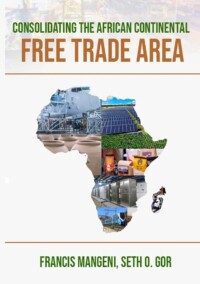The Movement of People in a Common African Market

New eBook on the AfCFTA Features Insightful Chapter by Alan Hirsch
We are excited to share the release of Consolidating The African Continental Free Trade Area, an eBook edited by Francis Mangeni and Seth Omondi Gor, published in August 2024. This important work provides an in-depth analysis of the AfCFTA’s progress and its potential to transform African economic integration, particularly as the continent strives toward establishing a Common African Market by 2028.
Alan Hirsch, leader of the Migration Governance Reform (MIGRA) project at the New South Institute, contributes a pivotal chapter titled “The Movement of People in a Common African Market.” Hirsch’s chapter examines the critical role of the free movement of people across African borders, arguing that effective migration governance is essential for the success of a truly integrated African market. He traces the history of migration on the continent from pre-colonial times through the colonial and post-colonial periods, highlighting how these dynamics have shaped current challenges and opportunities.
Hirsch delves into the various phases of migration governance in Africa, from the fluid movements of people before colonial borders were established to the rigid controls imposed by colonial powers and the subsequent challenges faced by newly independent states. He argues that while regional economic communities like ECOWAS and the East African Community have made strides in facilitating the movement of people, significant barriers remain, particularly at the continental level. Hirsch suggests that incremental reforms, such as the facilitation of skilled labor movement and the strengthening of bilateral and regional agreements, could pave the way for broader reforms under the African Union’s Free Movement of Persons Protocol.
Hirsch also emphasizes the importance of aligning migration policies with the broader goals of the AfCFTA, noting that the free movement of people is not only a matter of economic necessity but also a means to foster greater social and cultural integration across the continent. He advocates for a phased approach to migration reform, where initial efforts focus on skilled labor mobility, which can later be expanded to include other groups.
For those interested in the intricate relationship between migration and economic integration in Africa, this chapter offers a comprehensive and thought-provoking analysis. The full eBook is available for download here, and you can access Alan Hirsch’s chapter separately here on the New South Institute’s website. This publication is an essential read for policymakers, researchers, and anyone involved in shaping the future of African economic integration.



